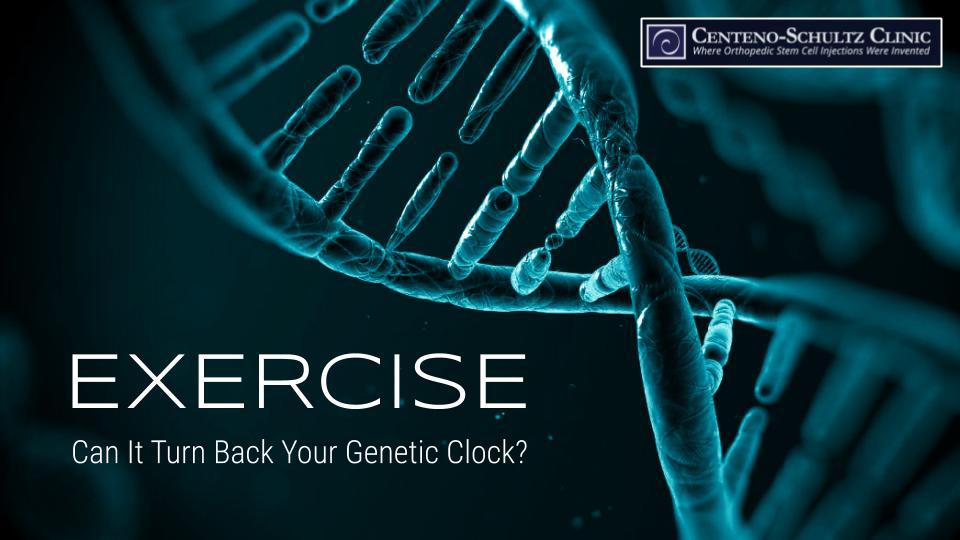What if there was something you could do to slow aging? We’re not talking about artificially, a nip here a tuck there, but genetically slow the aging process? There’s one thing that consistently hits our radar in that proverbial Fountain of Youth search that has seemed so important not only in today’s world but throughout time. How can we live longer and stay “younger” while we’re doing it? Time and time again, it all comes back to exercise! We already know the immense benefits to our health that exercise provides, but one study suggests exercise may also have the ability to turn back our genetic clock.
Epigenetics and Exercise
When we see the germ genetics, we might typically think of anything that is inherent in our body makeup. So physical traits, such as eye color or bone structure, for example. We might also think of diseases or conditions that we might be genetically prone to because our parents and their parents and so on passed them on to us at the time of our creation. For example, we might carry genetic markers for obesity or Alzheimer’s or cancer. We might not think about how we can affect our own genetics via our environment. But there is, in fact, a whole field of study dedicated to how our environment can alter our genetics, and it is called epigenetics.
Where genetics is nature, epigenetics is nurture. Genetics is the natural order of things, but epigenetics is alterable based on how we treat our own body. So diet, exercise, smoking, our contact with chemicals, and so on. Our DNA and genes are not an unalterable blueprint; they are base codes we are born with that are being constantly modified.
DNA Methylation: an Important Process of Epigenetics
DNA methylation is one of the main processes in epigenetics. It’s the process by which your genetic code becomes damaged when a small chemical (methyl group) comes into contact with the strand (at the C and A nucleotides) of DNA. Methylation can occur due to a variety of environmental impacts—stress, poor diet, or sickness for example. This process is so powerful that this modification in your own genetic code can then be passed to your children and their children and so on.
What’s we know less about is the positive impact epigenetics has on your genes. For example, when we consume a high-quality healthy diet, minimize our exposure to chemicals, and exercise regularly. One study, however, decided to investigate specifically if there was a positive environmental impact to our genes with regular exercise. Let’s review.
How Exercise Affected DNA Methylation in One Study
The study investigated the effect of exercise on skeletal muscle genes and imprinted genes. Specifically, they analyzed any exercise-based DNA methylation change in the genes. They discovered six areas of the DNA that had become modified after exercise. The specific genes were involved in muscle repair and muscle maintenance. In summary, the DNA methylation decreased with exercise. Interestingly, this finding was even stronger in older subjects, meaning that the older subjects would experience the benefits of slowed aging even more than their younger counterparts.
If you didn’t already need more reasons to exercise, the results of this study should provide a big inspiration to get off that couch. Exercise just might be altering our aging process at the genetic level. Imagine the possibilities! We might be passing these epigentically altered genes (DNA methylation) on to our kids and their kids…So your future grandchildren may be able to thank their slow aging on you sweating it out at the gym now!
